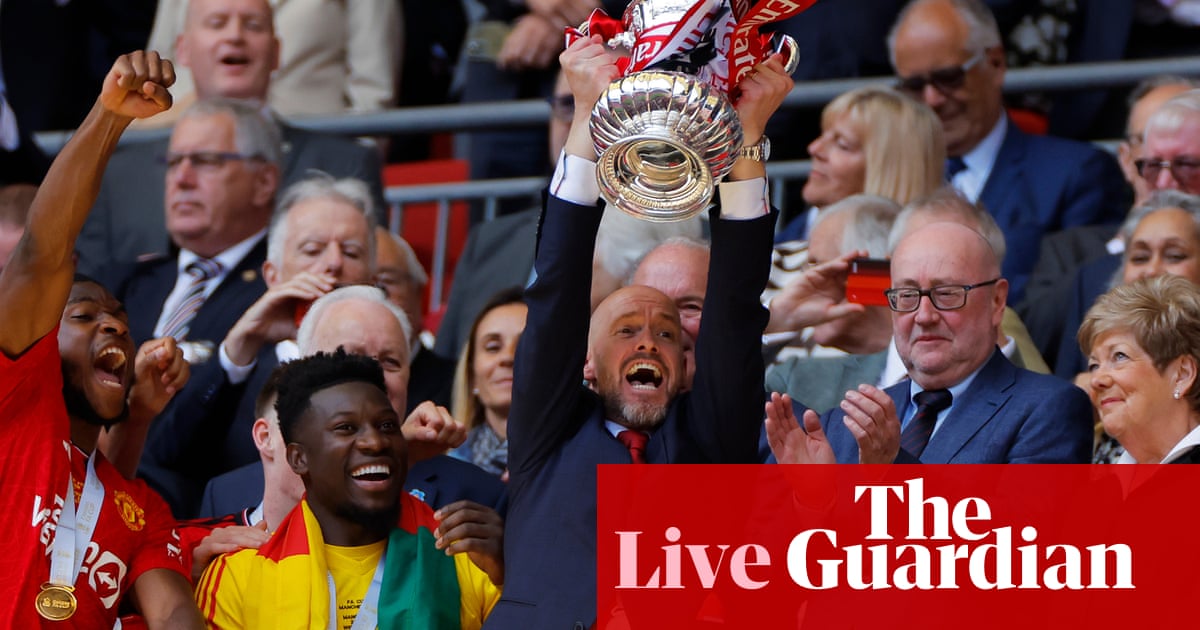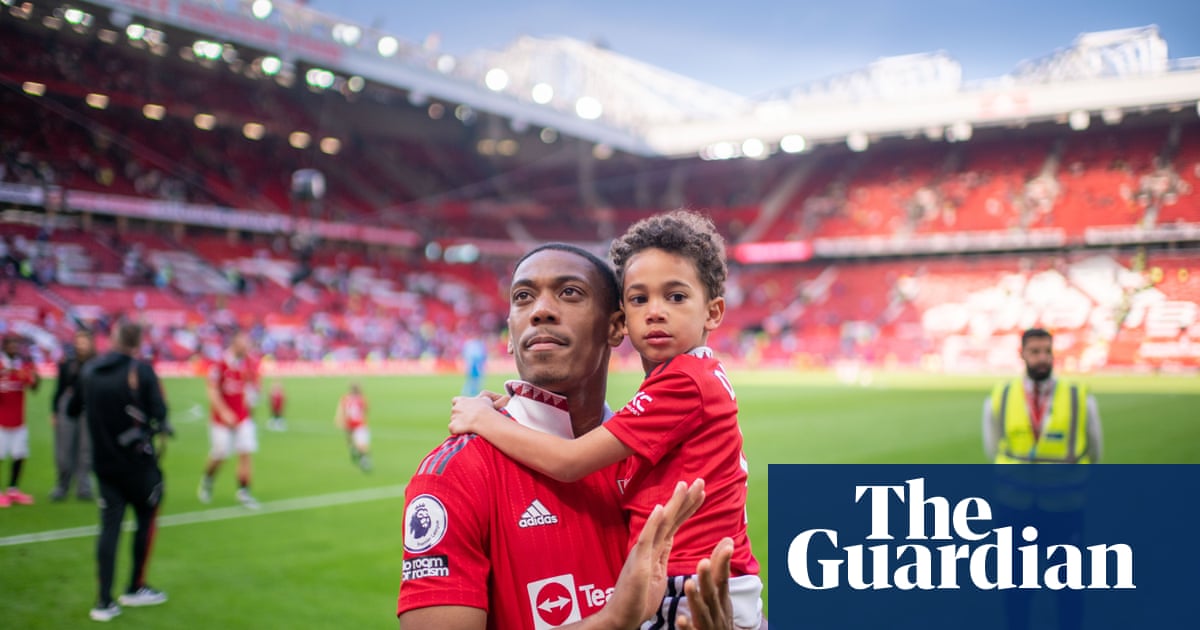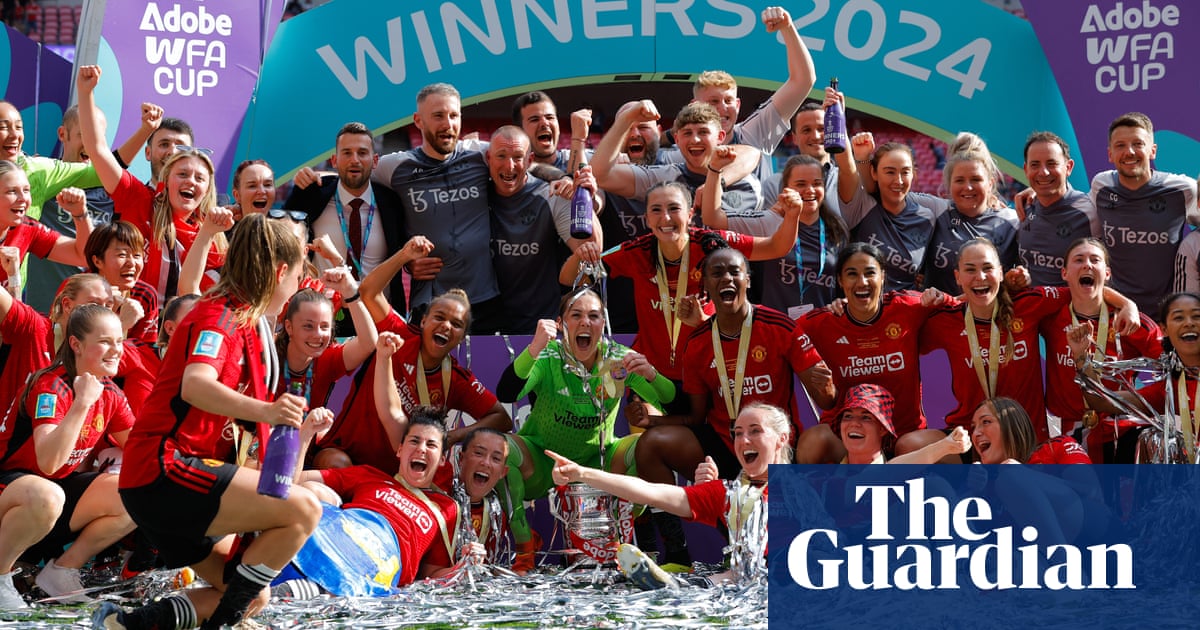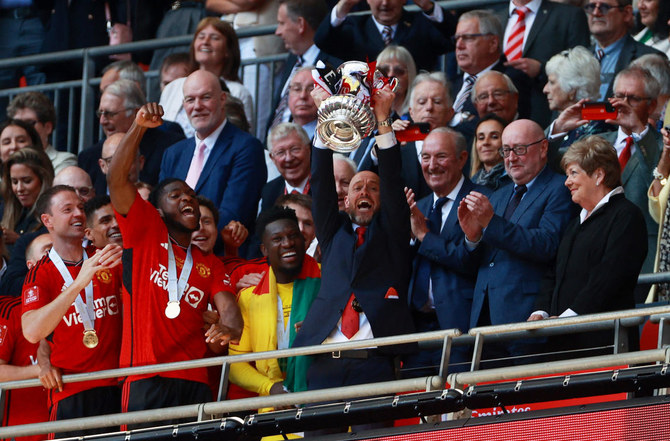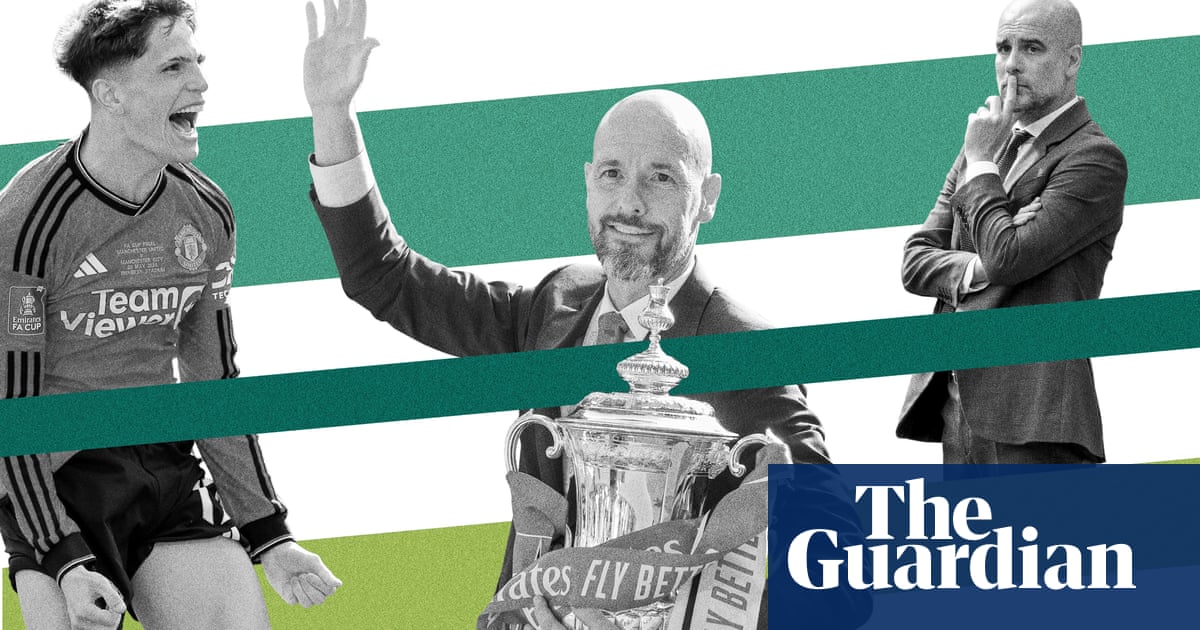
Some days, you wonder just why the FA Cup seems so embattled. Saturday’s final felt like a throwback: a sunny spring day, a sense of subplots coming together in an occasion that genuinely mattered, drama on the pitch and ultimately a shock. Perhaps it wasn’t quite Sunderland beating Leeds in 1973 or Southampton beating Manchester United in 1976 (or even Wigan beating Manchester City in 2013). But United finished lower in the league this season (eighth) than Wimbledon (seventh) did when they beat champions Liverpool in 1988. The status and histories of the clubs shouldn’t disguise what a shock United’s victory over City was.
For United, it was a great occasion. For them a first FA Cup in eight years and just their second trophy in seven, a step-up on the League Cup they won under Erik ten Hag last season. But more than that, they stopped City becoming the first club to win the Double in successive seasons. It’s not just about succeeding; it’s about the failure of others, especially your closest rivals.
But it was more even than that. Nobody just gets lucky against City. Nobody just pinches a goal from nowhere and then retreats to the bunker, crossing their fingers and watching shots whistle by. City are too good for that. United rode their luck at times: Erling Haaland hit the bar and André Onana made one stunning save from Kyle Walker, but Opta had United edging the xG 1.59-1.35.
In retrospect, it had been possible to see elements of United’s strategy in their 3-1 league defeat to City at the beginning of March: the deep-lying centre-forward, the box midfield, the rapid counter-punches down the flanks. On that occasion, having taken an eighth-minute lead, they held out until the 56th, at which point it all fell apart. But United were better at Wembley than they had been then, and City worse.
The Josko Gvardiol error that led to Alejandro Garnacho’s opener was a bonus for United, but it didn’t come from nowhere. They had been probing with that sort of ball, trying to unleash the pace of Marcus Rashford and Garnacho. Walker, with his extreme pace, had been equal to it; Gvardiol was not, although the fault was more Stefan Ortega’s, the goalkeeper finding himself in a position where he could neither win the ball nor usefully receive it from the left-back.
United’s second was rather different: a slick move in transition, culminating in a glorious disguised pass from Bruno Fernandes for Kobbie Mainoo to score. But it was allowed to be good; City players were slow to retreat, the spaces around the box astonishing. It’s very easy to construct grand theories and project explanations for such failures – sometimes things just go wrong – but in that moment City looked like a team that, at the end of a long season that has brought further great success, had lost a little hunger and with it a vital edge. One of Pep Guardiola’s greatest gifts is his intensity, the way his teams keep going, keep gobbling up trophies; it was not evident there.
City made two half-time changes and the fightback came but, until a late Onana error, spoiling what had been an excellent game for him, never really looked like being enough. Which leaves us where? Reports before the game had indicated United would sack Ten Hag whatever the result, while reports on Monday suggested Guardiola plans to walk away from City next summer.
That fitted with Guardiola’s comment after City clinched the Premier League that he was closer to going than staying and, while it should be noted that he has often made noises about quitting at the end of a season, his emotional reaction to Jürgen Klopp’s departure from Liverpool suggested a man who understood clearly, and felt intensely, the pressures of high-level management. On the one hand, there is his desire to win two more Champions Leagues and surpass Carlo Ancelotti as the most successful manager in the history of the competition, something he is almost certainly best placed to do at City; on the other there is the sense of fatigue, perhaps informed by the 115 Premier League charges the club still faces and the knowledge that a rebuild of the squad, although started, has some way to go.
Ten Hag’s situation is likely to be resolved more immediately. These decisions, really, shouldn’t be based on a single game, not even a Cup final. Chelsea, for instance, made Roberto Di Matteo’s spell as interim manager permanent after he won the Champions League in 2012 and regretted it almost immediately. After two seasons of Ten Hag at United, there is more than enough evidence on which to base a decision without allowing the emotion of a Wembley triumph carry too much weight.
What the victory has done, though, is to make sacking Ten Hag harder. Fans, perhaps, are more inclined now to give him the benefit of any doubt. If he is to be replaced, there is immediately something for the new manager to live up to: the potential is there for him to be haunted by the thought that Ten Hag won the Cup, that Ten Hag knew how to beat City.
And yet the fact remains that much of this season United were dreadful. With the highest wage bill, they finished eighth, their lowest ever position in the Premier League. They had a goal difference of -1. They conceded more shots that any side except Sheffield United, who set a record for goals conceded. For much of the season they seemed incoherent, while Ten Hag made a series of baffling public statements. Perhaps most damningly, the transfers with which he was most closely associated, most notably Antony, were generally dreadful.
United themselves talk of a season review this week that will determine Ten Hag’s future, although initial soundings of potential replacements have surely already been made. Mauricio Pochettino and Thomas Tuchel are available, while Thomas Frank and Roberto De Zerbi are also understood to be targets.
But if this is the end of Ten Hag, he leaves United as Louis van Gaal did, defiantly and with a trophy. And he does so having made the FA Cup, at least temporarily, seem once again like a trophy that matters.
This is an extract from Soccer with Jonathan Wilson, a weekly look from the Guardian US at the game in Europe and beyond. Subscribe for free here. Have a question for Jonathan? Email soccerwithjw@theguardian.com, and he’ll answer the best in a future edition




